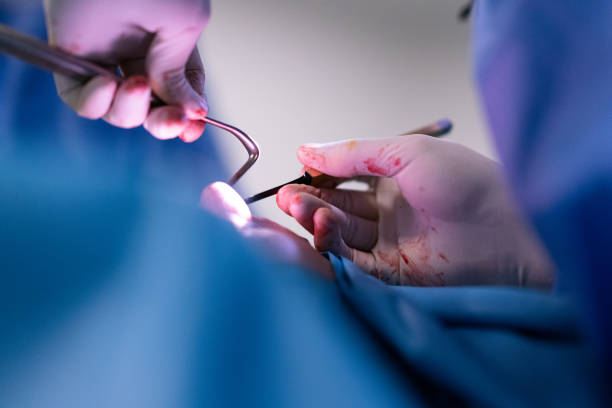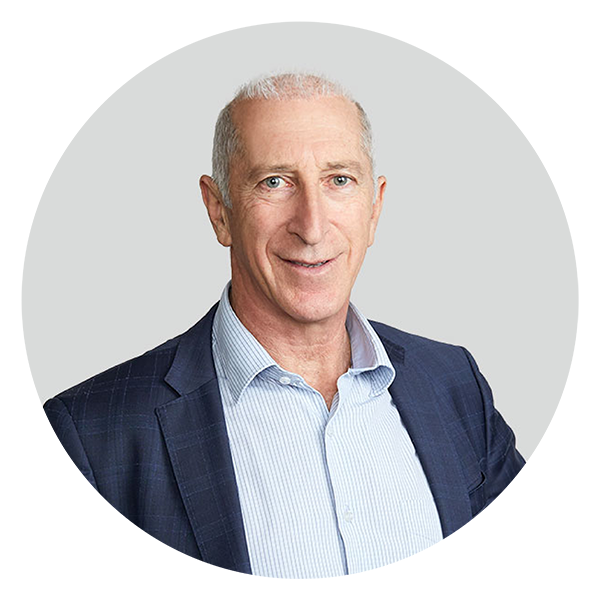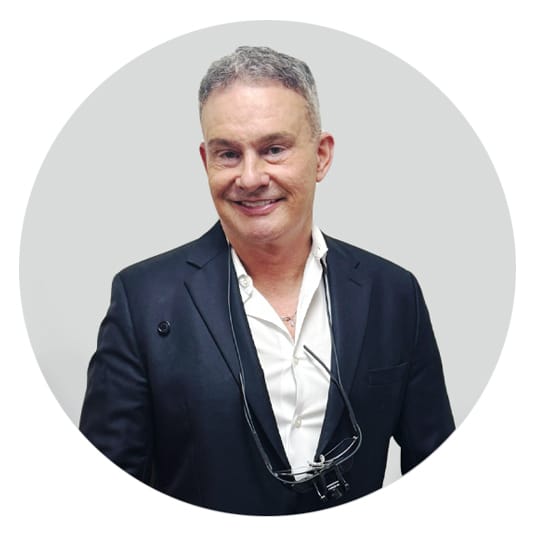What is ENT Surgery?
ENT surgery, also known as Otolaryngology surgery, focuses on diagnosing and treating conditions related to the Ear, Nose, and Throat. It encompasses a wide range of procedures and interventions designed to improve the function and aesthetics of these areas.
From addressing hearing loss and sinus problems to managing voice disorders and treating head and neck cancers, ENT surgery aims to alleviate symptoms and restore optimal function.
Melbourne ENT Surgeons Dr Stephen Kleid and Dr Simon Braham perform a wide range of ENT Surgery, detailed below.
What Procedures do ENT Surgeons perform?
ENT surgeons employ advanced techniques and technologies to deliver reliable and effective treatments tailored to your specific needs. Whether it’s repairing a deviated septum, removing tonsils and adenoids, or performing complex reconstructive surgeries, ENT surgery aims to alleviate symptoms, restore function, and enhance overall well-being.
If you are experiencing any ear, nose, or throat issues, consulting with an experienced Melbourne ENT surgeon can provide you with the guidance and advice you need for optimal health and wellness.

Common ENT Procedures and Treatments
ENT (Ear, Nose, and Throat) specialist surgeons perform a variety of procedures and treatments to address different conditions affecting the head and neck region. Some of the most common ENT procedures and treatments include:
Septoplasty and Septo-Rhinoplasty (Nose Surgery for Breathing Issues)
Surgery to correct a deviated septum involves straightening the nasal septum to improve nasal airflow and alleviate breathing difficulties. Find out more about Septoplasty and Septo-Rhinoplasty in Melbourne
Tonsillectomy and Adenoidectomy
Tonsillectomy is the surgical removal of the tonsils (Adenoidectomy for adenoid removal) often performed to treat recurrent tonsillitis, sleep apnoea, or breathing difficulties. Find out more about Tonsil surgery for children and Adult Tonsil Surgery and Chronic Tonsillitis.
Sinus Surgery
Sinus Surgery covers various surgical procedures to address chronic sinusitis or sinus-related conditions, including endoscopic sinus surgery FESS (See below).
Functional Endoscopic Sinus Surgery (FESS)
Minimally invasive techniques used to treat nasal polyps, chronic sinusitis, or structural abnormalities in the nasal and sinus passages. Find out more about FESS – Functional Endoscopic Sinus Surgery in Melbourne.
Myringotomy and Ear Tube Placement (Grommets Surgery)
Grommet Surgery is a procedure performed to relieve middle ear fluid build-up and recurrent ear infections, involving the insertion of small tubes into the eardrums to promote drainage and ventilation. Find out more about Ear Tube Surgery for kids.
Snoring Surgery
Snoring Surgery included a range of procedures to assist breathing, sleeping and general health.
Palatoplasty Surgery
Palatoplasty corrects or reconstructs the soft palate to treat conditions like snoring, sleep apnoea, cleft palate, and speech or swallowing issues.
Microlaryngoscopy
Microlaryngoscopy is a minimally invasive procedure used to diagnose and treat conditions of the voice box.
Laryngoscopy and Vocal Cord Surgery
Procedures to visualize the larynx (voice box) and treat various vocal cord disorders, such as vocal cord nodules, polyps, or paralysis.
Head and Neck Cancer Surgery
Surgical removal of cancerous tumors in the head and neck region, often combined with other treatments such as radiation therapy or chemotherapy. Find out more about Head and Neck Cancer Surgery with Dr Stephen Kleid.
These are just a few examples of the many procedures and treatments performed by ENT specialist surgeons. The specific procedure or treatment recommended will depend on the patient’s condition and individual needs. It is important to consult with an ENT specialist for a proper evaluation and to determine the most suitable approach for each case.

Common ENT Conditions
The field of ENT (Ear, Nose, and Throat) encompasses a wide range of conditions. Some of the most common ENT conditions include:
Ear Infections
These can occur in the inner, middle, or outer ear and can cause symptoms such as ear pain, hearing loss, fluid drainage, and fever.
Sinusitis
Inflammation or infection of the sinuses, leading to symptoms such as nasal congestion, facial pain or pressure, headache, and post-nasal drip.
Tonsillitis
Inflammation or infection of the tonsils, resulting in a sore throat, difficulty swallowing, swollen tonsils, and sometimes fever. see also Chronic Tonsillitis/
Allergies
Conditions such as allergic rhinitis (hay fever) and allergic conjunctivitis can cause symptoms like sneezing, nasal congestion, itchy or watery eyes, and post-nasal drip.
Deviated Septum
A condition in which the nasal septum, the thin wall separating the nasal passages, is significantly shifted to one side, causing nasal congestion, difficulty breathing, and recurrent sinus infections.
Voice Disorders
Conditions affecting the vocal cords, such as vocal nodules, polyps, or laryngitis, which can lead to hoarseness, voice strain, vocal fatigue, or difficulty speaking.
Sleep Apnoea
A sleep disorder characterized by pauses in breathing during sleep, often accompanied by snoring, excessive daytime sleepiness, and poor sleep quality.
Hearing Loss
Partial or complete hearing loss, which can occur due to various factors, including age, noise exposure, infections, or underlying medical conditions.
Vertigo
A sensation of spinning or dizziness, often caused by issues with the inner ear, such as benign paroxysmal positional vertigo (BPPV) or Meniere’s disease.
Head and Neck Cancers
Cancers affecting the structures in the head and neck region, including the throat, voice box, tongue, salivary glands, and nasal cavity.
It’s important to note that this list is not exhaustive, and there are many other ENT conditions that may require medical attention and treatment. If you suspect you have any ENT-related symptoms, it is recommended to consult with an ENT specialist for proper evaluation and diagnosis.
Find Out More About
- Sinus Surgery Sinusitis FESS
- Sleep Apnoea Surgery OSA UPPP
- Nostril Sill Reduction
- Reduction of Adams Apple (tracheal shave)
- Narrow Nostril Surgery
- Otoplasty (Prominent ear reduction)
General Recovery and Aftercare following ENT Surgery
Recovery and aftercare following ENT surgery are essential for ensuring a smooth healing process and optimal outcomes. While the specific instructions may vary depending on the type of surgery and individual patient factors, here are some general guidelines for recovery and aftercare after ENT surgery:
Follow Post-operative Instructions
It is crucial to adhere to the post-operative instructions provided by your ENT surgeon. These instructions may include guidelines on wound care, medications, activity restrictions, and follow-up appointments. Adhering to these instructions promotes proper healing and reduces the risk of complications.
Manage Pain and Discomfort
You may experience some pain or discomfort following ENT surgery. Take prescribed pain medications as directed by your surgeon or use over-the-counter pain relievers, if recommended. Applying cold packs or ice packs to the surgical site can also help reduce swelling and alleviate discomfort.
Rest and Limit Physical Activity
Give your body time to rest and heal. Avoid strenuous activities, heavy lifting, and vigorous exercise for the duration specified by your surgeon.
Engaging in gentle movements, such as short walks, can promote blood circulation and aid in the healing process.
Maintain Proper Wound Care
If you have any incisions or wounds, keep them clean and dry as per your surgeon’s instructions. Follow the recommended dressing changes, if necessary, and avoid submerging the surgical site in water until given permission by your surgeon.
Maintain Hydration and Nutrition
Stay well-hydrated by drinking plenty of fluids unless advised otherwise. Consume a balanced diet rich in nutrients to support healing and recovery. If there are any dietary restrictions or modifications, follow your surgeon’s guidance.
Monitor for Signs of Complications
Be alert for any signs of infection, including increased pain, redness, swelling, discharge, or fever. Contact your surgeon immediately if you notice any concerning symptoms or have questions or concerns about your recovery.
Attend Follow-up Appointments
Attend all scheduled follow-up appointments with your ENT surgeon. These visits enable your surgeon to monitor your healing progress, remove any sutures or packing as needed, and address any concerns or questions you may have.
Further Reading
- Read about Melbourne ENT’s Cancer Surgery – Head & Neck
- Read about Melbourne ENT’s Nose Surgery Melbourne
- View Melboutne ENT’s Before and After Photos
Remember, these are general guidelines, and your specific recovery and aftercare instructions may differ based on the type of surgery and individual circumstances. It is crucial to closely follow your surgeon’s advice and reach out to them if you have any concerns during your recovery period.
Why Choose Dr Kleid ?

Dr Stephen Kleid,
Melbourne ENT Surgeon
MED0001052799
Dr Stephen Kleid is an experienced ENT Surgeon (Otolaryngologist) based in Melbourne with a passion for Septo-rhinoplasty, Septoplasty and a strong interest in Rhinoplasty Revision.
Qualifications
- AHPRA (Medical Board)
- MB, BS; FRACS (Fellow of the Royal Australasian College of Surgeons)
- AAFPS – Member of the Australasian Academy of Facial Plastic Surgery
- AAFPRS – (International Member of the American Academy of Facial Plastic and Reconstructive Surgeons)
Dr Kleid’s Procedures
Why Choose Dr Braham ?

Dr Simon Braham,
Melbourne ENT Surgeon
MED0001144757
Dr Simon Braham MBBS (Hons) FRACS is an experienced Ear, Nose and Throat ENT Surgeon (Otolaryngologist) based in Melbourne, performing tonsil, grommet and sinus surgery for children & adults. He helps patients with breathing issues, snoring concerns and sleep disturbances.
Dr Braham’s Procedures
How can we help?
The Melbourne ENT Team takes pleasure in assisting you with any questions when considering a plastic surgery procedure. Please call the St Kilda East clinic in Melbourne between 9am – 5 pm on Weekdays.
What Next?

Want more information about your Procedure?
- Please read our website and blogs to find out more about your procedure and concerns
- For more information about pricing and payment methods, please visit our page on Surgery Payment Options.
- Talk to our Patient Care Team from 9 am to 5 pm Monday to Friday

What to Bring to Your Consultation
- We encourage you to bring a friend or family member to accompany you, as they can provide an extra perspective and support throughout the process.
- It is important to take thorough notes and carefully review all the documents provided to you.

How to Book a Consultation
- A referral from your GP or Specialist is necessary to see a surgeon for a consultation.
- Dr Kleid’s Nose Surgery consultation fee is $600 which includes a nasendoscopy ($300).
- Please contact us to book your consultation.

